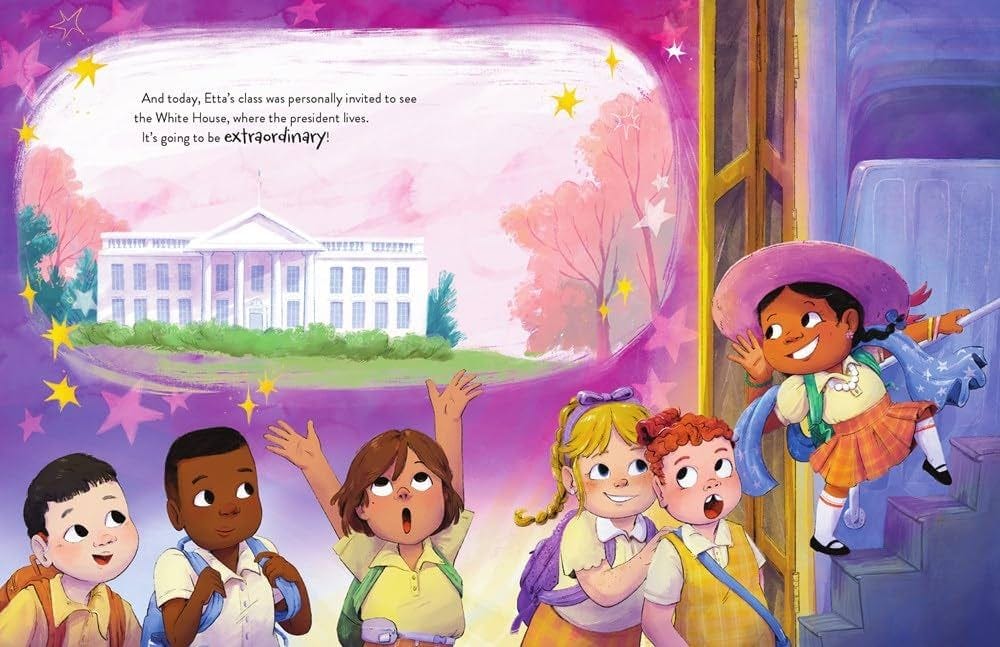Kids & Candidates: Sparking Meaningful Conversations About the Elections
Explore engaging books & tools for this elections season.
Tabitha here:
We are a little less than a week from the end of voting this election season. We’re hoping, if you’ve been following our newsletter, that you already know the importance of engaging our little ones in civic duties.
Adam and I take our kids to vote every time we can. I’m an immigrant so I actually couldn’t vote for a few years until I became a citizen. I’m also a Black woman. The fights and struggles that folks who came before me had to endure to give me this right will forever drive my desire to show up at the polls.
This election season is very fraught. From the treatment of migrants, discussions about the education department, what and how to teach our kids about their racial and gender identities, book bans, militarist approaches to conflict resolution, and the ongoing atrocities in Gaza, the issues that are driving people to vote, how to vote or not to vote are many.
Adam and I are determined to vote so our voices are heard and to also teach our kids that voting is only one of the many important tools in our fight for our democracy. It takes constant work and relentless engagement to create the world we want our kids to inherit.
Talking About Voting With Kids
Though voting is only one tool, it’s important to teach our kids its power. Here are a few books we are using to start and continue conversations with our little ones about voting (and to keep them going, too):
Stacey Abrams and the Fight To Vote by Traci N. Todd
A Vote Is A Powerful Thing by Catherine Stier
Otto Runs For President by Rosemary Wells
Etta Extraordinaire Goes To The White House by Roda Ahmed and Charnaie Gordon
Vote! by Eileen Christelow
As you read these books with your kids, remember to pause often and ask open-ended questions. The most powerful tool I learned from AORTA (anti-oppression resource and training alliance) was a framing that we apply to reading books with our kids:
“What do you observe/see?”
“What do you feel?”
“What do you think?”
AND these conversations may take a few days or even weeks. Follow your kiddo’s pace and remember that the goal is the lesson, not necessarily getting through the book.
Talking About Candidates With Kids
When we talk about political candidates, we center the conversation around values our family upholds. These values include justice, peace, non-violence, love, kindness, sharing, equity and more. We then talk about which candidate most closely aligns with these values.
For example, we believe in welcoming people to our country because we believe in sharing.
We believe in stopping the violence in Gaza because we believe in non-violence.
We believe everyone should be able to be themselves fully including their gender, race, etc because we believe in love.
If your kid is old enough, remember to introduce them to the idea that no candidate is perfect. We are voting for someone who we can engage with, who is most likely to listen to us and who is most likely to bring us closer to our dream of collective liberation for all.
Parents and caregivers, the next week is about to be tough no matter the results of the elections. Adam and I want you to take care of yourselves first. Put your oxygen mask on before putting on your kid’s own. We’re sending you lots of love and softness.
That’s it for us for today. Love up on your kids, ok? Take good care of yourself.
Best,
Tabitha & Adam




